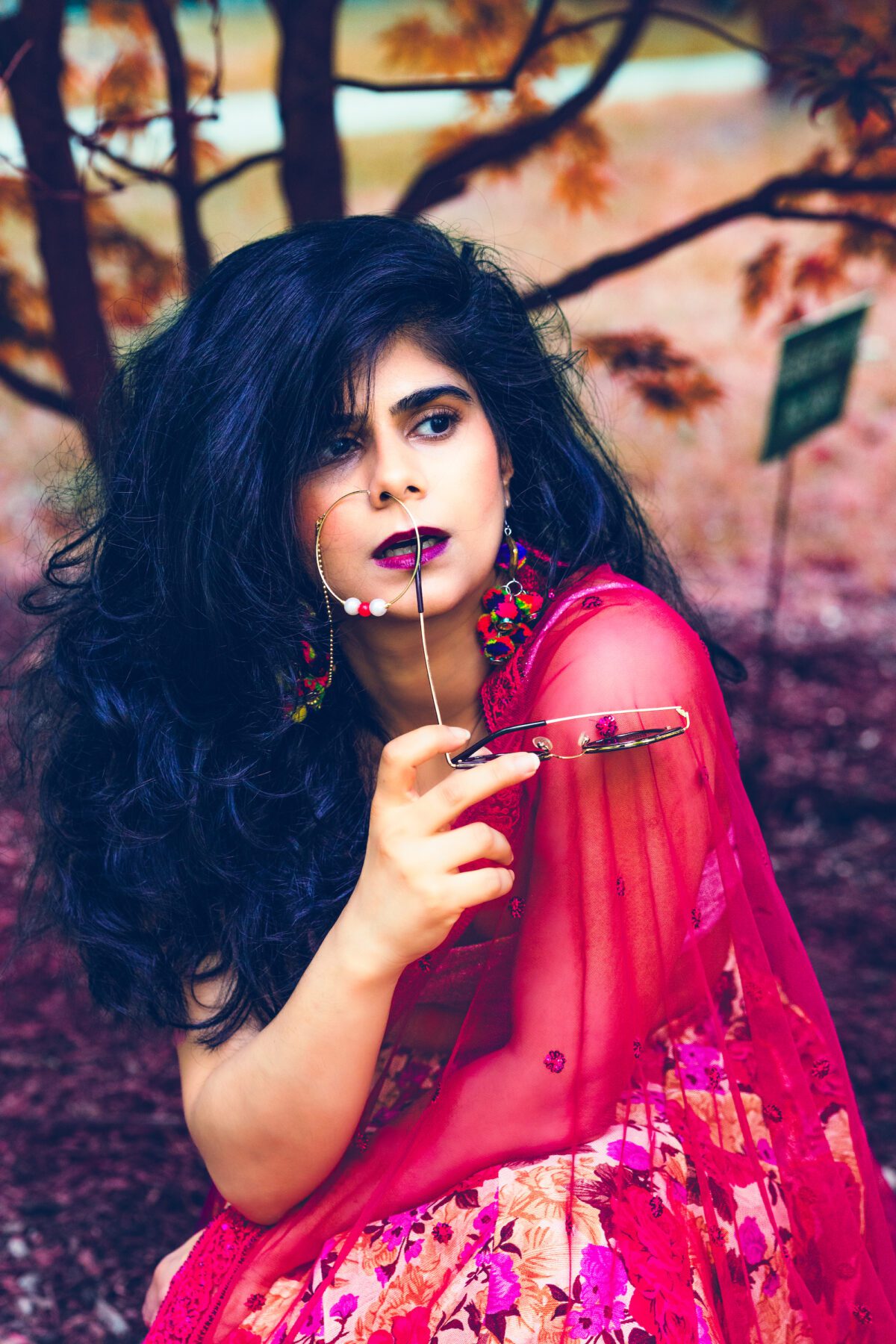Born in New Delhi and now based in New York, Mahima Saigal has built a career that refuses to fit into a single box. Actor, writer, director, choreographer, and educator, she sees each practice as part of the same current: storytelling. From her first brush with street theatre in Delhi, where a performance on child marriage opened an unexpected door, to her recent lead role in The Ceremony by Mfoniso Udofia, Saigal has pursued her craft with equal parts discipline and passion. What sets her apart is not just her talent but her conviction: an insistence that stories must embrace humanity in all its complexity. In conversation, Saigal speaks with clarity about the need for inclusivity beyond optics and the artists who shaped her sense of purpose, from Shah Rukh Khan’s emotional honesty to Arundhati Roy’s fearless politics. This interview captures a portrait of an artist deeply committed to both craft and conscience.
You grew up in New Delhi before moving to New York. When did you first discover theater as your calling?
I grew up in Delhi and studied at the Convent of Jesus and Mary, a school known for academic discipline. Success there was measured by grades, not creativity. Discovering street theatre felt like opening a secret door. We weren’t doing light material either — I still remember performing a play on child marriage in the eighth grade. Afterward, a teacher who had never noticed me academically stood up and praised my work in front of the class. That moment stayed with me. It showed me there was another way to be seen. Representing my school at inter-school competitions, and actually winning, gave me both affirmation and clarity. What started as an extracurricular became a calling.
What was your first significant moment as an actor, and how did it shape your path?
Ironically, it was an audition I completely bombed. On paper, the role felt tailor-made for me. Yet when the camera rolled, I blanked out. Brutal as it was, it taught me more than any success could have. I realized talent alone isn’t enough. I had to master the craft, understand it technically as well as emotionally, and give it discipline. That failure reshaped my approach. I now show up with rigor, respect for the process, and hunger to grow.
You’re also a writer, director, choreographer, and educator. Do these feel like separate practices, or do they inform one another?
They’re not separate streams but part of the same river. At the heart of each is storytelling. As an actor, my writer is always present, helping me listen deeply and read between lines. In school, we were taught not just to perform plays but to read them like maps — books like Poetics and Hero with a Thousand Faces became sacred texts.
Dance gave my body a vocabulary, teaching me to express what words can’t. Movement taught me how to speak with silence. Directing, meanwhile, taught me humility — how to zoom out, hold space for others, and see the whole. Every actor should direct at least once. It transforms how you listen and give.
You’ve spoken about inclusivity. What kinds of stories are you most passionate about championing?
Inclusivity isn’t radical — it’s basic humanity. And yet, history shows we’ve failed to practice it. For me, it’s not just about optics or casting — it’s about truth-telling. Arundhati Roy said it best: “There’s no such thing as the voiceless. There are only the deliberately silenced, or the preferably unheard.” Stories exist everywhere, in everyone. We’ve simply allowed one group to dominate the narrative.
I’m most drawn to stories that embrace complexity — epics that carry history, bloodlines, migration, and memory. From the Mahabharata to Greek tragedies to Mfoniso Udofia’s Ufot Cycle, these works remind us that our lives are not singular. These are the narratives I want to champion: ones that insist all of us belong not just as characters, but as storytellers.
Which artists or storytellers serve as models for the career you want to build?
I look up to artists who see storytelling as service — who use it to expand empathy and reflect not only the world as it is, but as it could be. I’m drawn to people with a spine: artists who lead with principle, even when it costs them.
Writers like Arundhati Roy, who wield language as both weapon and balm, inspire me. Playwrights like David Henry Hwang, who carved space for Asian American stories long before the industry was ready, remind me to fight for complexity over convenience.
And then there’s Shah Rukh Khan. Not just for his stardom, but for the emotional honesty he brought to every role. He made emotion expansive and safe. That shaped me as a child, and it still does. My goal is to carry those values—bravery, humanity, principle — through my own work.
Can you share more about The Ceremony by Mfoniso Udofia?
I’m originating a role in The Ceremony, Play Six of Mfoniso Udofia’s nine-part Ufot Cycle. It’s a significant Boston-wide event, and I’m honored to be part of this epic saga. I admired Mfoniso’s work long before this production, so stepping into a lead role feels profound.
The play is layered, current, and celebratory. It examines intergenerational trauma but also insists on joy, love, and resilience. Being part of this production has been deeply rewarding. It’s not just theater — it’s a cultural moment that expands what our stories can hold.
This interview has been edited for clarity and length.

